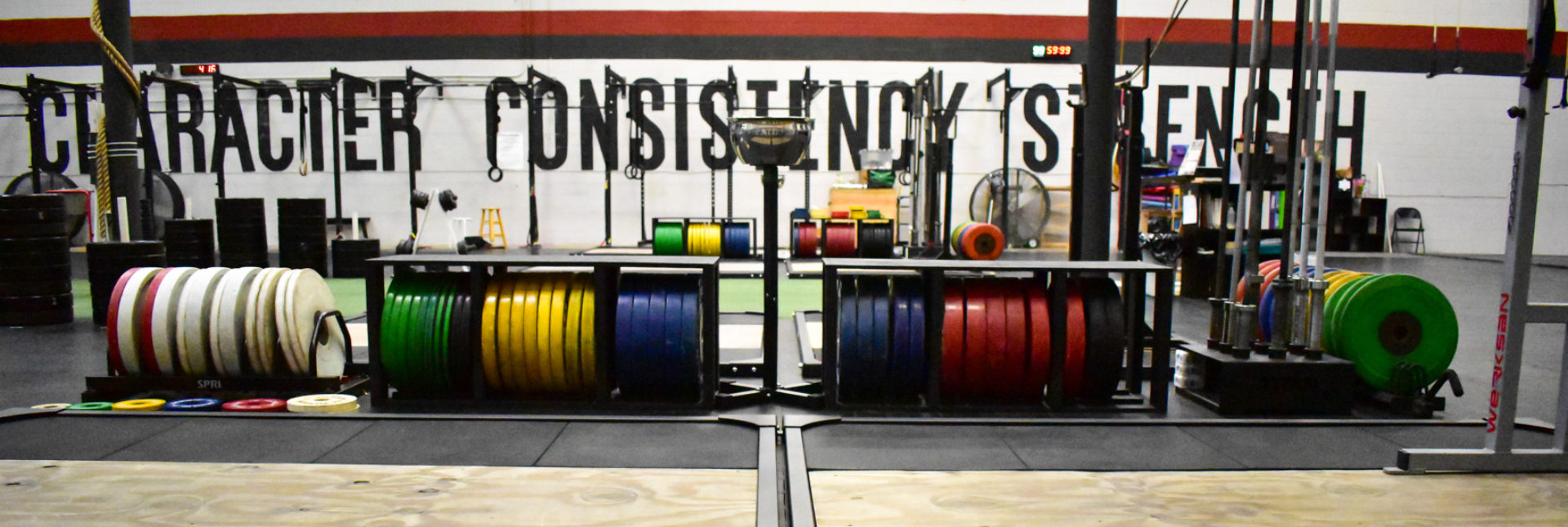We’ve all heard it: “You are what you eat.” This simple quote dates back over a hundred years and still gets it’s fair use out of nutrition coaches and experts everywhere. Though, it seems like all you need these days is an internet connection to deem yourself an expert in some field or another…
Either way, I’m not claiming to be an expert in nutrition by any means, but I would like to address the topic of nutrition from the perspective of a weightlifter. Nutrition is one of the key areas that many people either tend to overlook or push down the list of priorities because of work, school, not having enough time, etc. If you want to get the most out of your body, you have to make time for it the same way you make time for work and going to the gym. Hopefully, these couple of points should help you on your way to making your nutrition regimen as second nature as breathing.
So, what should I eat?
Let’s start with food quality; it’s simple — at real food. A good rule to live by is that if it has/had a face, came from something that has/had a face, or if it comes from the earth, get after it. This includes meats of all kinds (protein), vegetables, fruits, potatoes, grains (if you can tolerate them), eggs, cheese, etc. Everyone is a little bit different with what their preferences are and what their bodies can tolerate, but this is always a good starting point.
How much should I eat?
MORE.
It’s a common theme for people to think that they eat “SO MUCH ALL THE TIME,” but when it comes down to it, all they’re eating is some slices of pepperoni and half an apple…all day. Eating should feel like a full time job because it is a full time job. 6-7 meals per day plus snacks and hydration? Yep, that’s a lot of time spent eating. But when training as any kind of athlete, you. need. food. Food is what fuels your body — without it, our bodies simply will not respond. So the next time your body is shutting down for a nap in the middle of the day or you fail a front squat at 65%, ask yourself, “Did I eat MORE today?”
Sounds good, but I don’t have time to cook.
Yes, food preparation is time consuming. Personally, I probably spend around 3-4 hours per week prepping food. This includes cooking, portioning, and putting things in tupperware for me to consume throughout the day. Meal preparation must become part of your routine — again, if you decide to make time for it, it will fit into your schedule.
Last year, over 65% of Americans watched a minimum of 6-10 hours of football on television. So throw the game on, turn up the volume, and get your ass in the kitchen and start chopping up potatoes.
But, I get all my calories from shakes and protein bars.
First of all, don’t worry about calories just yet. Secondly, these things are called supplements for a reason. They are meant to supplement your current nutritional intake should you need more of something that somehow you can’t get from eating real food. How about this, if it comes in a box or plastic wrapper and has a shelf life long enough to feed our future space colonies on Mars, don’t eat it. Real food actually expires (imagine that).
Ok, ok. So, I made some time to cook. Let’s talk specifics.
Great, so you’re on your way to eating real food. Now, let’s categorize the types of foods that you eat. Most people divide meal composition into three major categories: protein, fats, and carbohydrates. These are known as macronutrients. Still want more? Ok, cool.
Protein – Protein’s primary function is for tissue repair and growth. It also has functions that contribute to hormone production and can be used as an energy source during long duration exercise.
Athletes generally require a greater amount of protein than the average sedentary person. Weightlifters especially need a fair amount of protein intake to support the cellular growth required to repair our muscles after a hard training session. A good number to shoot for is anywhere form 1.5g to 2.0g per KG of bodyweight. That means if I weigh 81kg, I should consume AT LEAST 160 grams of protein (81 x 2.0 = 162 [grams]). Good sources of protein include: eggs, beef, chicken, pork, fish, and turkey.
Fats – Don’t let this “non-fat” movement fool you; fats are a necessary part of the human diet. I’m not saying load up on fats, but athletes should consume unsaturated fats from nuts, avocados, fish, and olive oil. These “good” fats are essential for organ health, the immune system, and the heart. They also help to reduce inflammation in the body.
Carbohydrates – You guessed it…this is our dirty little “C” word. Quite a bit of people have demonized carbohydrate consumption, but carbs are essential to not only existing as a human being, but they are also essential for athletic performance. For us weightlifters, carbohydrates should make up a majority of your overall consumption. Adequate ranges to shoot for vary anywhere from 4 grams to 12 grams per kilo of bodyweight. Some simple math for you as an example: my 80kg body weight x 4 grams = 320g of carbohydrates per day.
320 grams. PER DAY. And I’m not talking about broccoli and squash.
Of course, this is a ballpark figure and should be adjusted to fit your individual needs. But, I know that probably goes against a lot of what is being pushed out in the “fitness community”, so while you digest that for a moment, let’s talk about why.
Training as a weightlifter requires medium to high intensity exercises and sets that occur in short, intermittent bursts. This type of training uses an energy system in the body that depends primarily on stored carbohydrates in the body (otherwise known as glycogen). Glycogen is stored in the liver and within muscle tissue and the body immediately turns to it during this type of training. While our training sessions might push 2 hours long, that is not the entire duration of exercise. You need to consider the type of work that is being performed and how it is being performed.
I know 300+ grams per day sounds like a lot. It is. But we also work hard and need to provide our bodies with the proper amounts of fuel to do so. While I crush an entire meat lovers pizza every Friday evening and junk food is delicious, I would urge you to limit yourselves to good clean carbs such as rice, potatoes, oats, granola, and fruit. Getting fat and going up a weight class or two is not the answer to athletic performance. Like the old saying goes, “You can’t out-train a shitty diet.”
However you decide to fuel your body with carbs, the fact remains that you need them as part of your diet. Cutting carbs, unless otherwise directed by a DOCTOR, is hands down a recipe for disaster with any type of strength training, period.
Carbs. *cringe* Got it. Now what?
The easiest way to get yourself started with meal preparation is to grab some weightlifter kitchen essentials:
- Outdoor grill (gas or charcoal, doesn’t matter)
- Crock Pot (we have FOUR)
- Rice Cooker
- Large frying pan
- Foil baking sheets
When cooking in large quantities, the grill and oven will be your best friend. Use the oven for baking things like your vegetables and potatoes. The outdoor grill will come in handy when you need to cook up 5 pounds of chicken or beef (or both). Be smart about your prep and you’ll be on your way to success. When we slide off the rails of our “diet”, it’s usually because we’re out and about and we are caught without food in our cooler. Prepare for your eating the same way you would prepare for your next competition. They’re really the same thing anyway.
Get started today with 813 Weightlifting at www.KeepPulling.com/LIFT or contact us below!


